Sir Robert Gillies’ tangi was everything he tried to dodge - the speeches, the tributes, the honours, the saluting.
But the spotlight was on the treasured war hero as he was given a farewell fitting for the last man standing of the 28 Māori Battalion.
Affectionately known as Tā Bom or Koro Bom, the 99-year-old’s nehu (funeral service) at Te Papaiouru Marae today was an occasion of sadness, laughter and inspiration.
As government and public buildings throughout the country flew the New Zealand flag at half-mast in honour of Sir Robert, hundreds gathered in front of Tamatekapua Meeting House at Te Papaiouru Marae, Te Arawa’s paramount marae in Rotorua, to farewell him.
Of Ngāti Whakaue and Ngāti Kahungunu descent, the reluctant war hero died on Thursday after suffering ill health following a car accident a few months earlier.
His grandson, Te Whanoa Gillies, gave his eulogy and said the family had been planning for his 100th birthday, on February 14 next year. But the otherwise fit and healthy man never recovered from a vehicle accident a few months ago. Gillies said it created a domino effect of health complications and he took his last breath on Thursday.
“Koro’s tangi was everything he didn’t want. The honours, the tributes, the speeches, the poroporoaki [final night of a tangi] that finished at 3am ... it was everything that koro dodged because he was very humble and never wanted to steal the limelight from his brothers of the two eight. He wanted all the honours for him to go back to the others because he thought they deserved it more than him.
“It was lonely for him being the last man standing but it had to be someone and that someone was him.”
Gillies said during the past few days thousands of people had paid tribute to his koro.
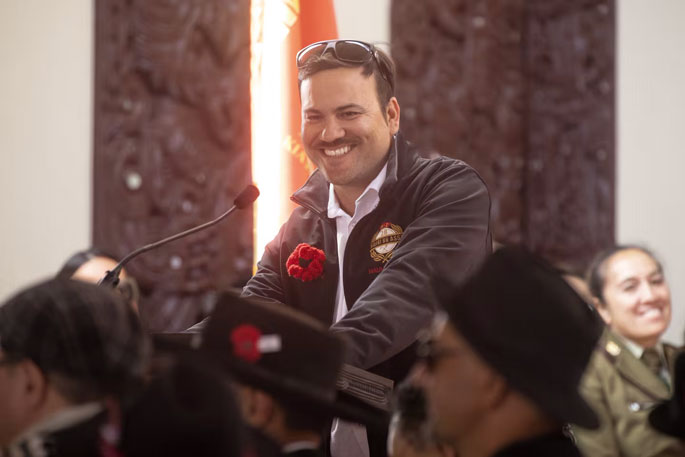 Te Whanoa Gillies delivers the eulogy for his koro, Sir Robert Gillies. Photo / Andrew Warner
Te Whanoa Gillies delivers the eulogy for his koro, Sir Robert Gillies. Photo / Andrew Warner
“Many people said koro was a window to the past of their own koros and nans. To us he was just our koro, someone we loved dearly, respected and taught us many things in life.”
Gillies said his koro was independent, still driving, still climbing scaffolds and still building fences.
In one of the many quips of humour during the hour-long service, Gillies said people needed to stop telling the story of his moko standing around while their koro worked hard on the roof.
“We weren’t just doing nothing, we were going to catch him if he fell.”
The New Zealand Defence Force pays tribute
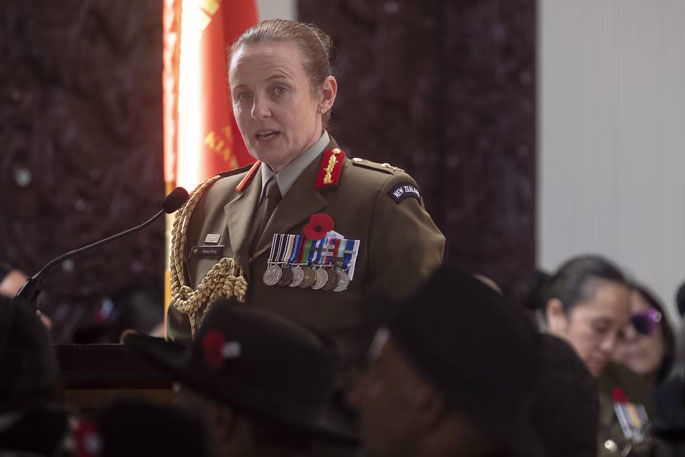 Major General Rose King. Photo / Andrew Warner
Major General Rose King. Photo / Andrew Warner
Major General Rose King spoke on behalf of the New Zealand Defence Force saying Sir Robert embodied bravery and resilience throughout his service in North Africa and Italy during World War II.
She spoke of all his awards and honours, including being knighted in two countries after previously turning down the New Zealand knighthood.
King said while Sir Robert was at war, he faced some of the most challenging battles including the intense conflict at Monte Cassino. Despite going on to sustain injuries, he continued to serve alongside his brothers in arms.
“What Sir Robert and his comrades endured and experienced in North Africa and Italy remains one of the harshest chapters in our collective history.”
Words from the Church
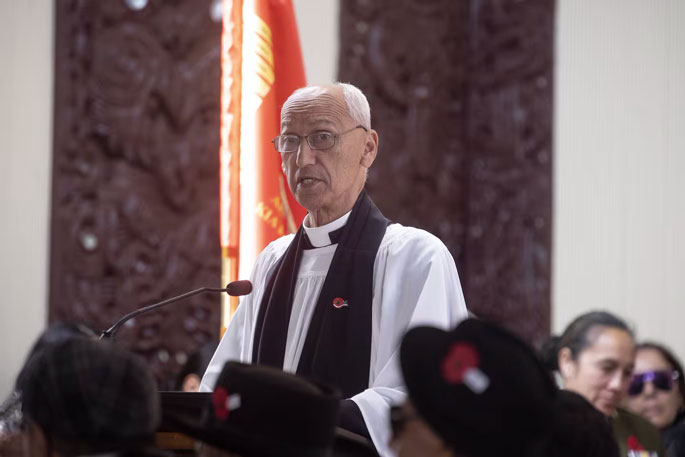 The Reverend Tom Poata delivers a humourous and inspirational address at Sir Robert Gillies' funeral. Photo / Andrew Warner
The Reverend Tom Poata delivers a humourous and inspirational address at Sir Robert Gillies' funeral. Photo / Andrew Warner
The Reverend Tom Poata started his address with his expected wit by saying: “As a 35-year-old, what on Earth have I got to contribute in the way of an analysis of a man who has lived for 99 summers”.
He spoke of Sir Robert’s love for his late wife, Rae Ratima, who, he met at one of the infamous “Tama dances” at Ōhinemutu, and how he went on to build their family home with his own hands.
“He adored her utterly. They got around here [Ōhinemutu] like a pair of teenagers holding hands ... Her death, I think, was one of the saddest moments of his life.”
Poata’s speech ended with a message of how Sir Robert’s legacy could live on and how he was an example for Māori to relieve problems they were now facing.
“It is with quiet confidence that we ought to address those issues as if we were batallion representatives ... It is in the struggle, as they discovered in the trenches and their actions all over North Africa and Europe - Monte Cassino especially, how when you’re put into a difficult position the only thing you can do is fight to get out of it. We need to continue to fight for each other, but not physically - socially, ethically, and morally. We must take the high ground and occupy it and refuse to leave.”
He said the right to fight was available now more than ever thanks to the likes of Sir Robert. Poata said Sir Robert’s memory shouldn’t be seen as just a myth to boost egos and tribal pride.
“Yet let’s live by example and do our own work in our own trenches to save ourselves from the other.”
The final farewell
Sir Robert’s casket was carried from the marae by his whānau, some holding his beloved 28 Māori Battalion flag he personally designed and carried to official ceremonies.
A rousing haka broke the respectful silence as the casket was taken into St Faith’s Church, where a candle was lit.
His whānau then carried his casket to the awaiting army representatives who placed it on a gun carriage while a three-shot gun salute from soldiers standing near St Faith’s Church rang out.
He was slowly driven to Tūnohopū Marae for a final time before being put into his beloved Bedford van and taken on his final journey to Kauae Cemetery, where he now lies next to his late wife.
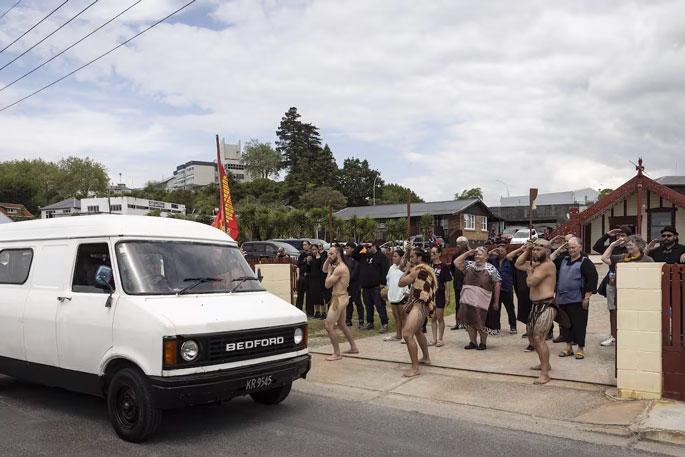 The final part of the funeral for Sir Robert "Bom" Gillies, the last surviving member of the 28 Māori Battalion, was in his beloved Bedford van. Photo / Andrew Warner
The final part of the funeral for Sir Robert "Bom" Gillies, the last surviving member of the 28 Māori Battalion, was in his beloved Bedford van. Photo / Andrew Warner
What did Sir Robert mean to you?
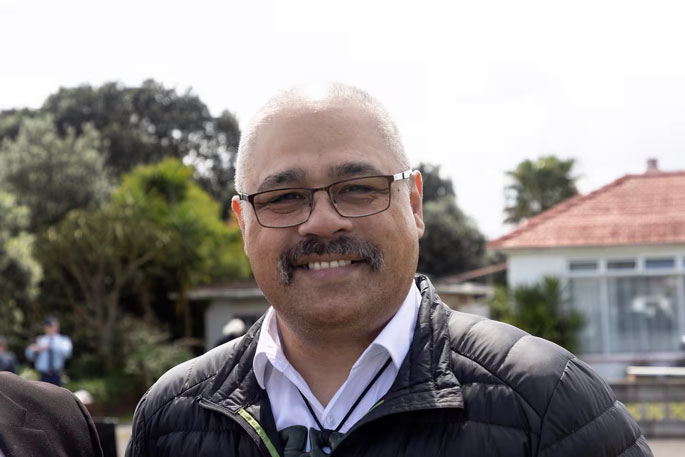 Peene Henare, Labour list MP. Photo / Andrew Warner
Peene Henare, Labour list MP. Photo / Andrew Warner
He fought alongside my grandfather who was the commander of the 28 Māori Battalion. Bom was celebrated among Māori but also all of Aotearoa and was known for his humility. He was just a good man.
Peene Henare, Labour list MP
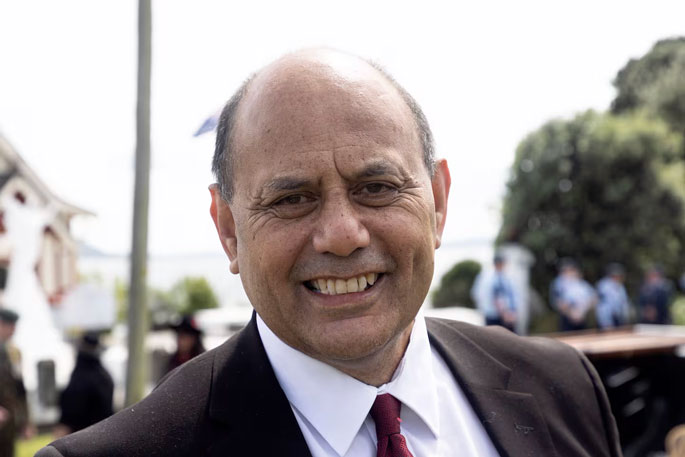 Willie Jackson, Labour list MP. Photo / Andrew Warner
Willie Jackson, Labour list MP. Photo / Andrew Warner
He was magnificent. A humble man and a great example for generations to come. He was the epitome of humility.
Willie Jackson, Labour list MP
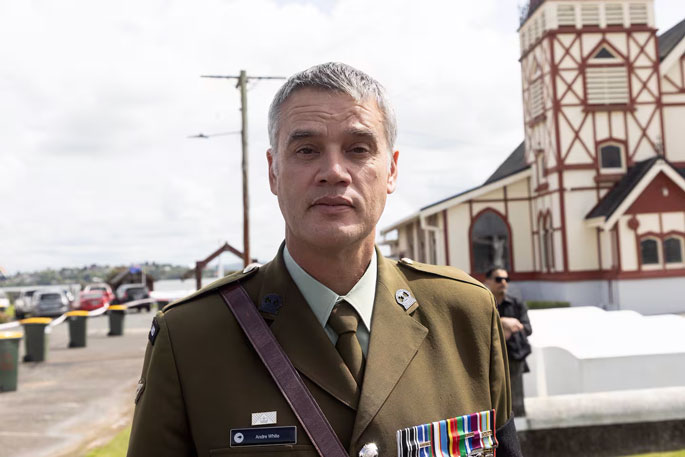 Warrant officer Mahaki White, New Zealand Defence Force. Photo / Andrew Warner
Warrant officer Mahaki White, New Zealand Defence Force. Photo / Andrew Warner
He will forever be known as the last man standing of the Māori Battalion. We hold the Māori battalion in great reverence.
Warrant Officer Mahaki White, New Zealand Defence Force
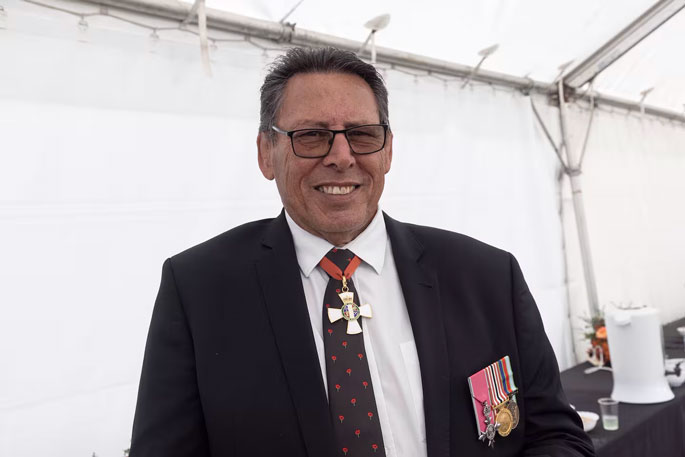 Wayne "Buck" Shelford, former All Blacks captain. Photo / Andrew Warner
Wayne "Buck" Shelford, former All Blacks captain. Photo / Andrew Warner
I have got to know him in the last few years. He was a confident man for his age and didn’t like pomp and ceremony.
Sir Buck Shelford, former All Blacks captain
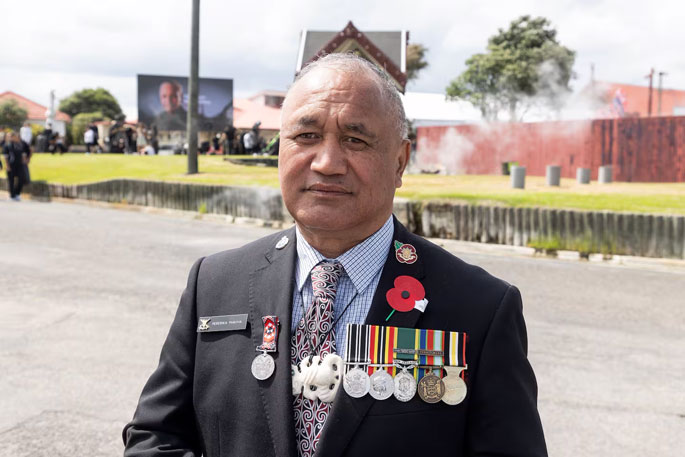 Pererika Makiha, Te Arawa Returned Servicemen’s League president. Photo / Andrew Warner
Pererika Makiha, Te Arawa Returned Servicemen’s League president. Photo / Andrew Warner
He has been a member of Te Arawa Returned Servicemen’s League for many years. He has left a big hole in our league and in the iwi and hapū but he leaves a legacy.
Pererika Makiha, Te Arawa Returned Servicemen’s League president

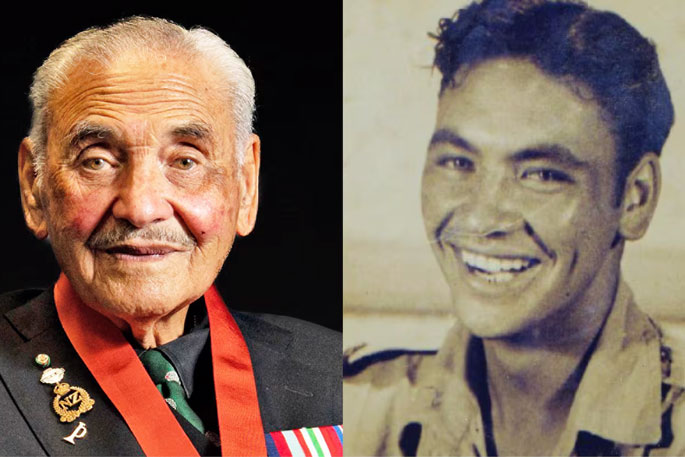

0 comments
Leave a Comment
You must be logged in to make a comment.